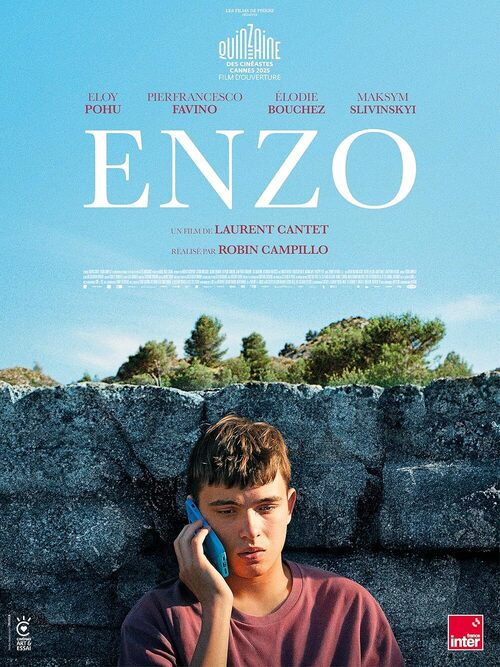Eye For Film >> Movies >> Enzo (2025) Film Review
Enzo
Reviewed by: Richard Mowe

There cannot help but be a tinge of sadness around a film that started shooting with director Laurent Cantet (whose The Class won the Palme d’Or in 2008) and, after he succumbed to cancer, was finished by his friend Robin Campillo (120 BPM (Beats per Minute), also a Cannes award-winner in 2017).
Chosen for the opening night slot in the Cannes Directors’ Fortnight, it’s an affecting coming-of-age tale about a teenager trying to find his own identity within a claustrophobic family unit and set against the seductive backdrop of the Côte d’Azur. Instead of conforming to the expectations of his bourgeois parents who would prefer a more traditional future for their off-spring, the 16-year-old Enzo (newcomer Eloy Pohu) decides to start a masonry apprenticeship.
This leads to fierce tensions between him and his parents (Élodie Bouchez and Pierfrancesco Favino) as well as his academically inclined older brother (Nathan Japy) whose celebration to mark his success in gaining a prestigious university place, provides a flashpoint between the siblings.
Once his workmates discover he comes from a plush and privileged background he becomes a figure of curiosity, particularly for an older Ukrainian bricklayer Vlad (Maksym Slivinksyi) with whom he becomes infatuated, opening up possibilities of sexual horizons he had not contemplated. Enzo also has a girlfriend (Malou Khebzi) with whom he goes skinny-dipping and indulges in amorous overtures while Vlad shares photographs of his girlfriend back home.
The film creates a complex portrait of a teenager who has yet to decide his way forward while railing against the norms set down by his mother and father. He prefers instead to hang out with the construction site band and to explore his relationship in particular with the charismatic Vlad who, at least on the surface, appears straight and for the time being has escaped the war at home.
The filmmakers refuse to pigeon-hole Enzo’s precise feelings which, in some ways, reduces the dramatic pivot of the narrative. Yet Pohu’s performance sums up all the conflicted feelings, desires and anxieties of someone at the crossroads of entering adulthood and carries the arc forward.
It has echoes of André Techiné’s 1994 Wild Reeds – and not just because of the presence of Bouchez, at the time also a teenager in a quartet of youngsters grappling with awakening feelings, self-discovery and sensuality. Here her portrait of Enzo’s mother is both loving and concerned.
With Campillo’s sympathetic rendering of Cantet’s final script he can be sure his mentor, with whom previously he had worked as a co-writer and editor on a number of his features, would have approved.
Reviewed on: 22 May 2025
















